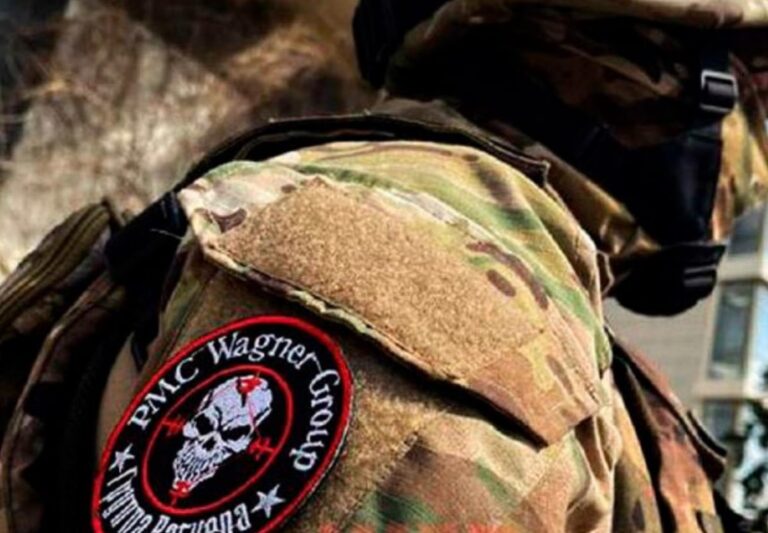The Wagner Group attempted to assassinate Ukrainian President Zelensky and now participates in numerous offensives in the Russian-Ukrainian war.
Its activities, however, are much broader, although much of its information remains top-secret.
Table of Contents
What is the Wagner Group
The Wagner Group, or ČVK Vagner, active on Putin’s orders in the Russian-Ukrainian war, is very difficult to define.
Theoretically it is supposed to be an independent private military company. That is, a group of mercenaries (or contractors) who can be hired by anyone willing and able to pay them. In practice, however, it looks like a paramilitary group serving the Russian Ministry of Defense.
In fact, the company has almost always acted in Russia’s stead around the world when the country has been unable or unwilling to take sides in a conflict. Somewhat as if it were a private version of the Russian military and thus freer to act on its own.
Moreover, the company’s use has less media coverage than the use of the regular army. To give you an example, the death in combat of a member of the Wagner group, even if a Russian national, affects Russian public opinion much less than that of an official soldier.
Let’s see how the Wagner came into being and how it operates.
Wagner’s founding and first operation
The founder of the Wagner Group, Dmitry Valer’evič Utkin, is a Russian military man and entrepreneur with neo-Nazi sympathies.
Active in the first and second Chechen wars, he was later part of a private mercenary company, operating all over the world. His last public appearance was in December 2016, when he was hosted at a lavish dinner at the Kremlin and was honored by Vladimir Putin for unspecified merits.
Today, however, the head of the company is supposed to be (but is not confirmed) Yevgeny Prigožin, a Russian oligarch and Vladimir Putin’s trusted man.
The Wagner Group’s first operation took place in 2014, in the Lugansk region of Donbass. It consisted of just over 250 soldiers who, later funded with millions of dollars, started a recruitment campaign that brought them to much higher numbers. Today there should be about eight thousand soldiers. The mercenaries come from 15 countries around the world, but mostly they are Russian citizens.
Apparently, Wagner’s legal headquarters are in Argentina, but their training camp is located in Russia, in Krasnodar territory, in premises ostensibly registered as a children’s school camp. But actually belonging to the Ministry of Defense in Moscow.
What does the Wagner Group fight for?
Does the Wagner Group fight for an ideal or is it made up of pure mercenaries? There has been much discussion about this, especially since the beginning of the war in Ukraine. In particular, comparisons have been made with the Ukrainian Azov Battalion, which is linked to a fascist/Nazi-inspired political movement.
The founder of the Wagner company, in fact, is considered a neo-Nazi. And the very name of the company – it seems no accident – is Wagner, after Adolf Hitler’s favorite composer, Richard Wagner.
Finally, the symbol of the group is a skull, which has sometimes been compared to that of the Nazi SS. Although the two symbols are quite different from each other and have a different history behind them.
In any case, and despite the Group’s founder’s sympathies and symbology, most analysts argue that the group does not act for ideological reasons.
The places where Wagner has operated and is active
Not just Ukraine. Since the Donbass in 2014, Wagner has operated in numerous countries around the world. All those in which Russia had the slightest geopolitical interest.
Mercenaries have acted, for example, in two civil wars. Namely, in Syria and Libya. In Syria they supported the regular army that supported President Bashar al Assad, helping him retain power. While in Libya, they operated in support of General Khalifa Haftar’s faction.
In every area where they have operated, UN reports have shown that heinous war crimes have been committed.
It is in Africa, however, that most mercenaries have been sent, supporting the governments of Sudan, Democratic Republic of Congo, Central African Republic, Mozambique and Madagascar.
The governments of these African countries extract important resources from their territory. And demand protection from the Russian militia in exchange for financial compensation or concessions. Sudan, for example, has granted Moscow a monopoly on gold mining.
Recently, the Wagner group was accused by Italian Defense Minister Guido Crosetto of being responsible for the arrival of a significant share of migrants on the coast of southern Italy, labeling the operation as a Russian tactic of “hybrid warfare.”
However, the group’s leader, Yevgeny Prigožin, responded to these statements by denying the accusations. Prigožin himself said in a provocative tone that in 2024 he will run for presidential elections in Ukraine. Thus challenging President Zelensky and former President Poroshenko.
On the ground, however, the Wagner Group is now at the forefront of the Russian attack on the town of Bakhmut, which is being strenuously defended by Ukrainian forces.












